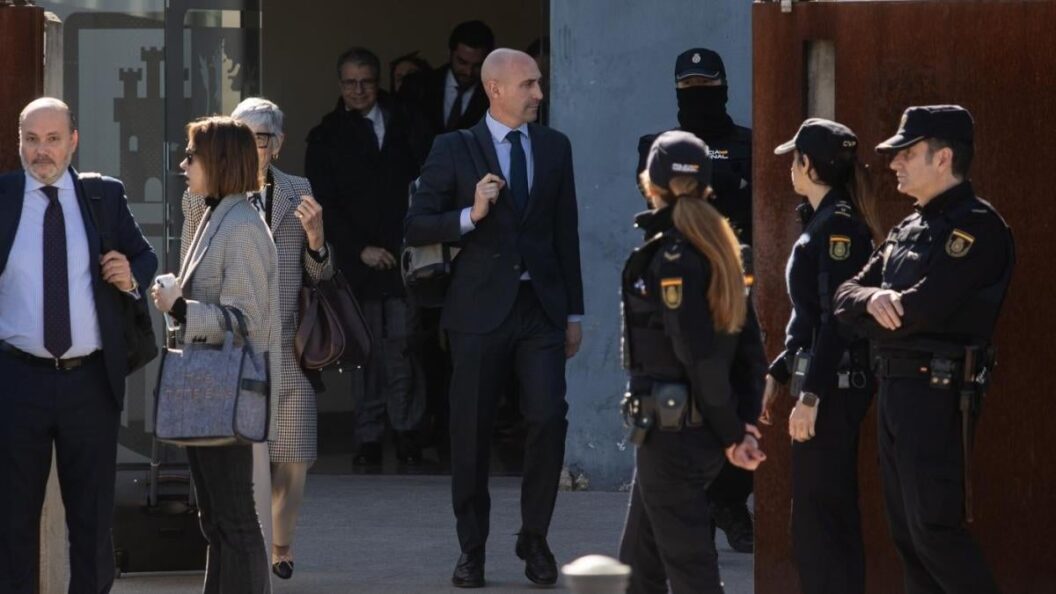Trial Begins Over Rubiales’ Controversial Kiss of Jenni Hermoso at Women’s World Cup
Members of Spain’s women’s national soccer team have provided testimony in a Madrid court regarding the controversial kiss by former Royal Spanish Football Federation (RFEF) president Luis Rubiales toward player Jenni Hermoso during the trophy presentation of the 2023 Women’s World Cup final. The incident, which occurred on August 20, 2023, is central to a trial where Rubiales faces accusations of sexual assault and coercion. Prosecutors are seeking a total prison sentence of two and a half years if Rubiales is convicted.
Details Surrounding the Incident
The controversy ignited immediately after Rubiales kissed Hermoso while she was on her way to receive her World Cup winner’s medal. The incident drew widespread condemnation not only from the sports community but also from the general public. Following the event, calls for Rubiales’ resignation intensified, especially in light of previous allegations regarding sexism and inadequate working conditions within the women’s national team, which surfaced in 2022.
FIFA suspended Rubiales from his role on August 26, 2023, and he officially resigned two weeks later. In addition to his legal troubles related to the kiss, he is also facing investigation for potential corruption during his tenure as president of the federation.
Jorge Vilda, the head coach of Spain’s victorious team, was also implicated in the controversy. He was dismissed shortly after the incident due to allegations of fostering a toxic work environment, and he has been associated with Rubiales during various controversial moments.
Court Testimonies and Impact on Hermoso
In her testimony, Hermoso described the incident in detail, clarifying that Rubiales grabbed her by the ears and forcibly kissed her, stating, “A kiss on the lips is only given when I decide so.” Following the incident, Hermoso’s initial experience was met with ridicule from teammates, though defender Irene Paredes quickly intervened to support her.
Hermoso also recounted how she was pressured by federation officials to issue a statement downplaying the incident and was later approached to record a video doing the same. Her brother, Rafael Hermoso, testified that Vilda encouraged him to persuade her to minimize the incident to protect the federation’s reputation.
The aftermath of the incident weighed heavily on Hermoso. Paredes noted that Hermoso expressed feelings of anxiety and abandonment, reflecting that “there was no place for me to be crying or lying in the corner of the dressing room,” emphasizing the psychological impact it had on her.
Support from Teammates
Teammates, including Alexia Putellas, echoed similar sentiments about the toll the incident took on Hermoso. Paredes highlighted that Hermoso felt overwhelmed and constantly harassed by federation officials following the incident. “Jenni was worried, she was upset… because it was an issue that was weighing on her,” Paredes recounted, emphasizing the disconnect between the joy of their World Cup victory and the distress stemming from Rubiales’ actions.
Legal and Societal Implications
The trial of Luis Rubiales has broader implications, reflecting growing concerns about gender equality and respect in sports. As athletes continue to push back against systemic issues within sports organizations, the eventual outcome of this trial could prompt changes in governance and policy, particularly around issues of harassment and discrimination.
The case has attracted international attention, marking a significant moment in the ongoing dialogue about the treatment of women in sports. As the proceedings unfold, the testimonies from Hermoso and her teammates will likely influence public opinion and have a lasting impact on the landscape of women’s soccer.
The trial is not only pivotal for Hermoso and Rubiales but also emblematic of the larger societal shifts regarding accountability and respect for women in positions as athletes and professionals within sports organizations. The final verdict could resonate well beyond the confines of the courtroom, potentially encouraging further reforms aimed at safeguarding athletes in the future.









